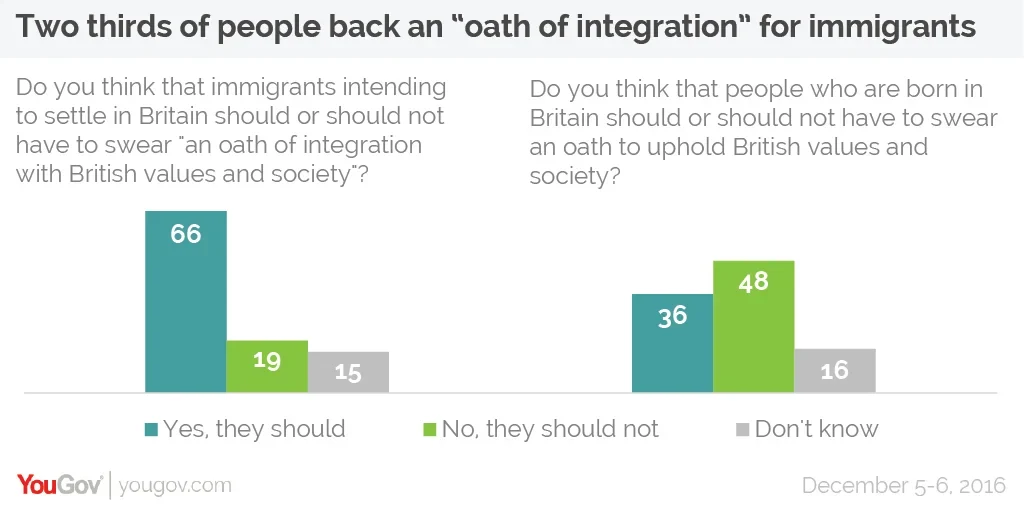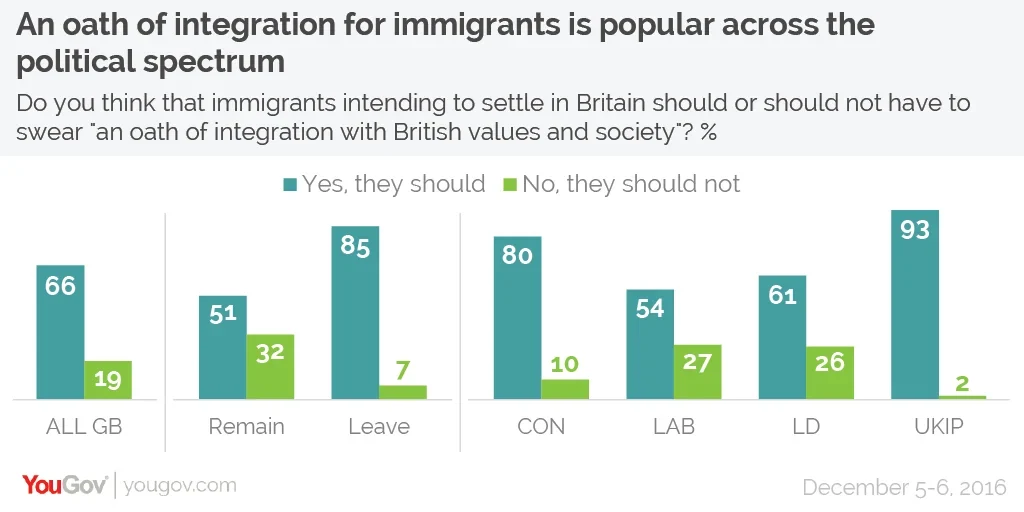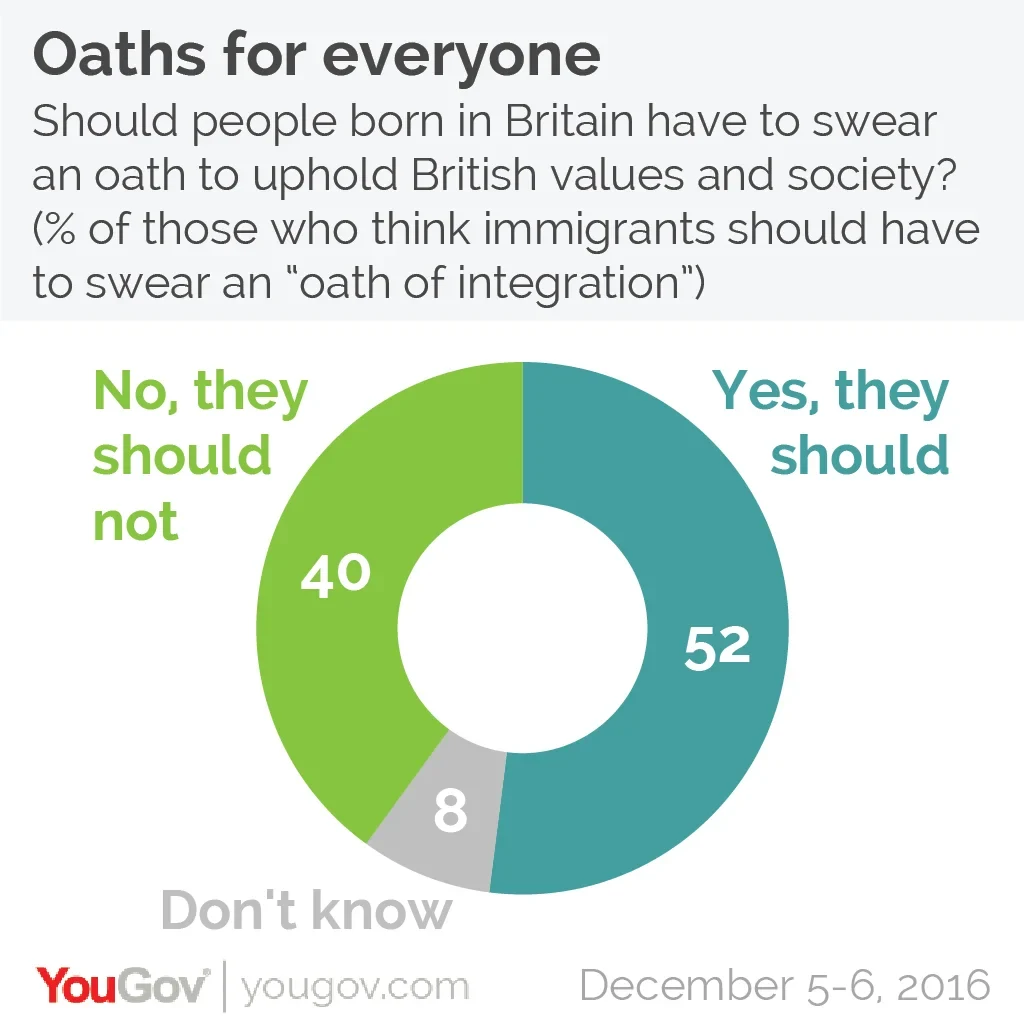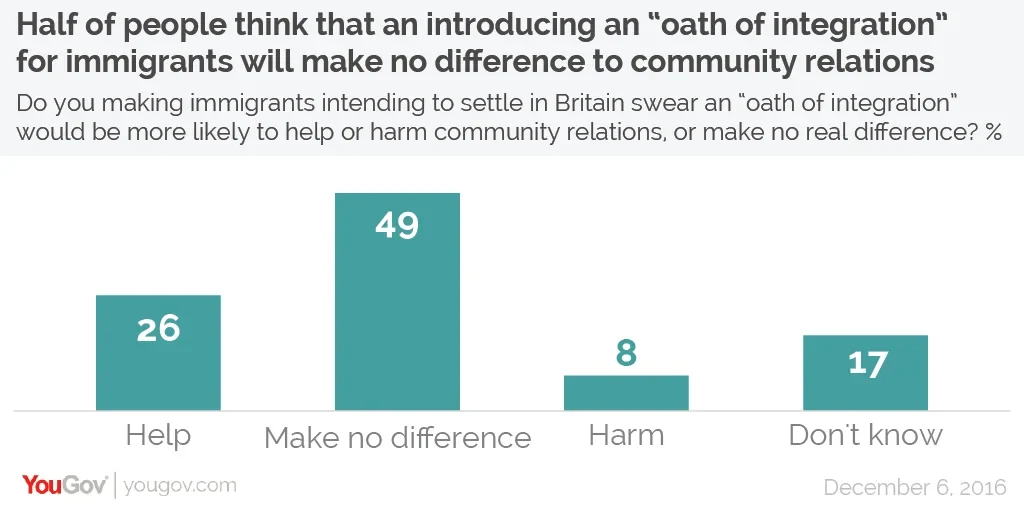Recommendation from the Casey Review that immigrants should have to swear an “oath of integration with British values and society” is supported by wide sections of society
On Monday this week headlines were dominated by a controversial new government report into social integration. One of the recommendations from the report was that immigrants intending to settle in Britain should have to swear “an oath of integration with British values and society”.
YouGov research has now found that introducing such an oath would be widely supported by the general public, with two thirds of British people (66%) agreeing that immigrants should have to swear such an oath. Only 19% of people oppose introducing an oath.

The suggestion has majority backing across voters of all political parties. Those who voted UKIP in 2015 are the most likely to support introducing an oath of integration, at 93%. Eight in ten Conservative voters back an oath, as do 61% of Liberal Democrat voters and 54% of Labour voters.
Support for an oath also bridges the Brexit divide, with a majority of Remain voters backing it. Just over half (51%) say they think immigrants should have to swear an oath of integration, as do 85% of Leave voters.

There is only one group of people where fewer than half support an oath – 18-24 year olds. Yet even amongst this demographic the suggestion is supported more than it is opposed, with 34% backing it compared to 29% opposing.
An obvious complaint that many will have with the idea of an “oath of integration” is that it is holding immigrants to standards that those born in Britain have never been asked to swear by. It’s not as if pledges of loyalty among a country’s domestic-born citizens are unheard of – the Pledge of Allegiance in the USA being the most obvious example.
To that end, YouGov also asked whether people thought British-born citizens should have to swear their own equivalent pledge to uphold British values and society. Such a proposal was much less popular with the general public, with just over a third of the public (36%) supporting such a pledge. By contrast, nearly half of people (48%) oppose it.

It is notable, however, that a majority of people (52%) who back an oath of integration for immigrants would also back introducing an oath for British-born citizens (37% would oppose).
Only old people are more likely to back an oath for British-born citizens than not, at a rate of 47% to 43%. Leave voters are split at 44%, whilst all other demographic groups tend to oppose introducing an oath.
Whilst many may back an oath of integration for immigrants in principle, they are more dubious about its usefulness in practice. Results from a separate survey show that half of people (49%) think introducing such an oath will make no difference to community relations.

A quarter of people (26%) think that an oath would help improve community relations, more than three times the 8% who think that it would harm them.
There is no demographic group that is more likely to think that an oath of integration would help community relations than make no difference. Likewise, there is no group that is more likely to think that an oath of integration will harm rather than help community relations.
Photo: PA








